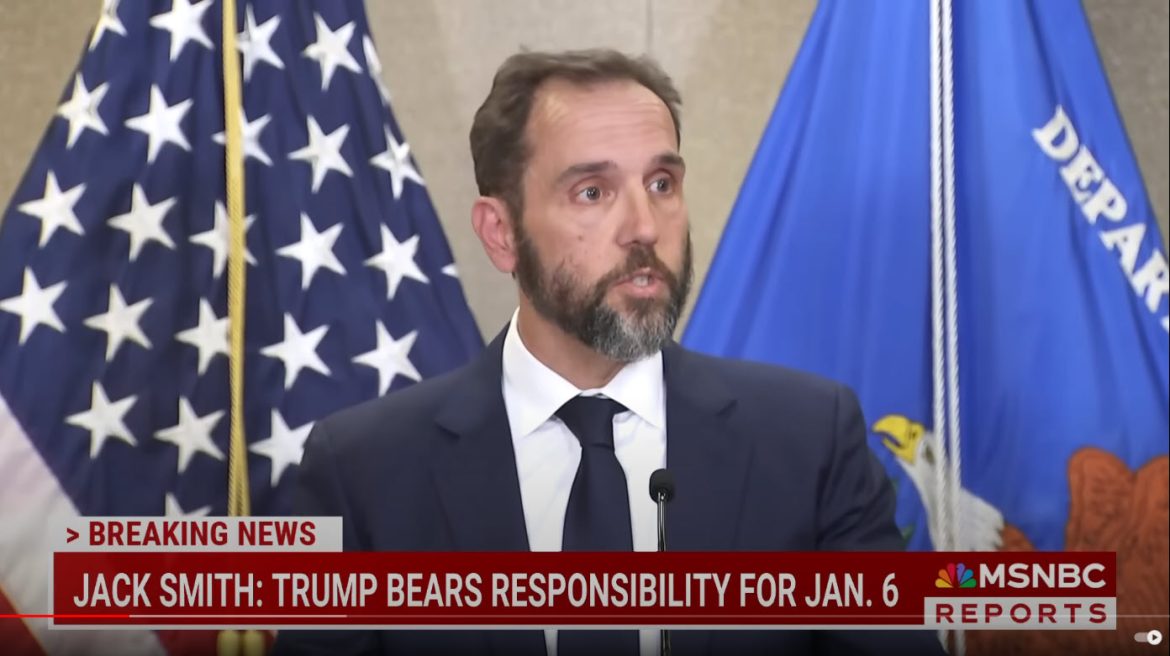Special Counsel Jack Smith is pushing back against former President Donald Trump’s latest attempt to have his January 6th federal election interference case dismissed. Trump’s legal team is citing a recent Supreme Court ruling that favored a Capitol rioter facing similar charges, arguing that this precedent should lead to the dismissal of Trump’s case as well. However, Smith contends that Trump’s legal argument fails to take into account the broader context of his actions and the evidence presented by the prosecution.
In the ongoing battle over Trump’s role in the January 6th insurrection, Smith maintains that the former president willfully incited his supporters to obstruct the certification of Joe Biden’s 2020 election victory. Smith asserts that Trump’s actions went beyond protected speech or political rhetoric, directly leading to the violent breach of the U.S. Capitol. The special counsel’s office argues that Trump’s conduct is not protected under the same legal reasoning used to dismiss the rioter’s charges and that Trump’s broader role as the instigator of the attack differentiates his case from others.
This legal confrontation comes as Trump’s defense team seeks to capitalize on a Supreme Court ruling earlier this year, which sided with a participant in the January 6 riot. In that case, the court ruled that certain charges could not be applied due to a lack of sufficient evidence tying the defendant’s actions to obstruction of an official proceeding. Trump’s lawyers are leveraging this decision in their bid to have the case against the former president thrown out, but Smith and his team argue that the ruling does not absolve Trump of responsibility, given the deliberate and orchestrated nature of his actions leading up to the attack.
Trump Requests Delay of Additional Immunity Filing
In a separate legal maneuver, Trump’s legal team is also requesting a delay in the release of a redacted appendix that contains key evidence gathered by Special Counsel Jack Smith. The appendix, which was initially set to be released today, contains vital evidence related to Trump’s alleged attempts to overturn the 2020 election results. Trump’s attorneys are asking the judge to postpone the release until November 14, just over a week after Election Day, citing the need for additional time to prepare their response.
This delay request follows Smith’s filing of a superseding indictment in August, which builds upon the original charges against Trump, adding further evidence of his involvement in efforts to subvert the election. Trump’s legal team plans to use the delay to prepare a response arguing that the former president’s actions on January 6th are immune from prosecution, based on a previous Supreme Court ruling that grants immunity for official acts carried out while in office.
Trump’s legal team is expected to argue that his efforts to challenge the 2020 election results fall within the scope of his official duties as president, an argument that they believe will shield him from legal liability. However, Smith and his team are preparing to counter this defense, pointing out that Trump’s actions were not part of his official duties but rather an attempt to unlawfully interfere with the democratic process.
The Battle Over Immunity and Accountability
This latest legal battle adds to the mounting complexity of Trump’s defense in the January 6 case, as his attorneys navigate both the procedural and substantive issues surrounding the charges. Trump’s team is focusing on arguments that his actions were part of his duties as president, while Smith’s prosecution insists that Trump’s role in inciting the violence of January 6th was a deliberate attempt to subvert the election process, making him accountable for the resulting chaos.
The stakes in this case are high, as a successful dismissal or immunity ruling could significantly alter the course of the prosecution, while a failure to secure these outcomes would bring Trump closer to facing trial. As the November 14 filing deadline approaches, all eyes are on the legal strategies being employed by both sides, with the outcome likely to have major political and legal ramifications.
The case remains a flashpoint in the broader conversation surrounding accountability for the events of January 6th and the limits of presidential power. As Trump continues his bid for the 2024 Republican nomination, the legal proceedings will undoubtedly remain in the national spotlight, influencing both public perception and the political landscape.



